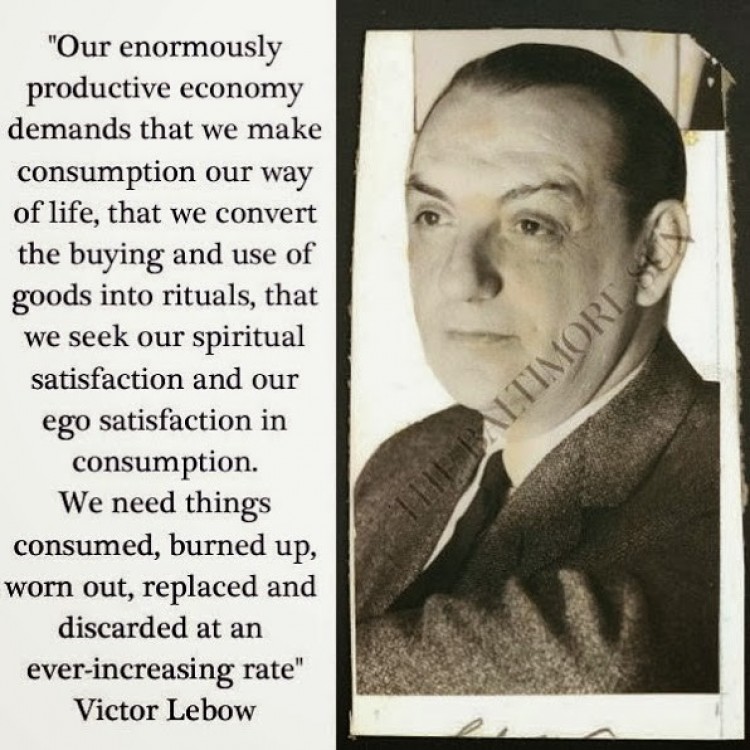Victor Lebow

link http://www.gcafh.org/edlab/Lebow.pdf
The Real Meaning of Consumer Demand
Our enormously productive economy demands that we make consumption our way of life, that we convert the buying and use of goods into rituals, that we seek our spiritual satisfactions, our ego satisfactions, in consumption. The measure of social status, of social acceptance, of prestige, is now to be found in our consumptive patterns. The very meaning and significance of our lives today expressed in consumptive terms. The greater the pressures upon the individual to conform to safe and accepted social standards, the more does he tend to express his aspirations and his individuality in terms of what he wears, drives, eats- his home, his car, his pattern of food serving, his hobbies.
These commodities and services must be offered to the consumer with a special urgency. We require not only “forced draft” consumption, but “expensive” consumption as well. We need things consumed, burned up, worn out, replaced, and discarded at an ever increasing pace. We need to have people eat, drink, dress, ride, live, with ever more complicated and, therefore, constantly more expensive consumption. The home power tools and the whole “do-it-yourself” movement are excellent examples of “expensive” consumption.
What becomes clear is that from the larger viewpoint of our economy, the total effect of all the advertising and promotion and selling is to create and maintain the multiplicity and intensity of wants that are the spur to the standard of living in the United States. A specific advertising and promotional campaign, for a particular product at a particular time, has no automatic guarantee of success, yet it may contribute to the general pressure by which wants are stimulated and maintained. Thus its very failure may serve to fertilize this soil, as does so much else that seems to go down the drain.